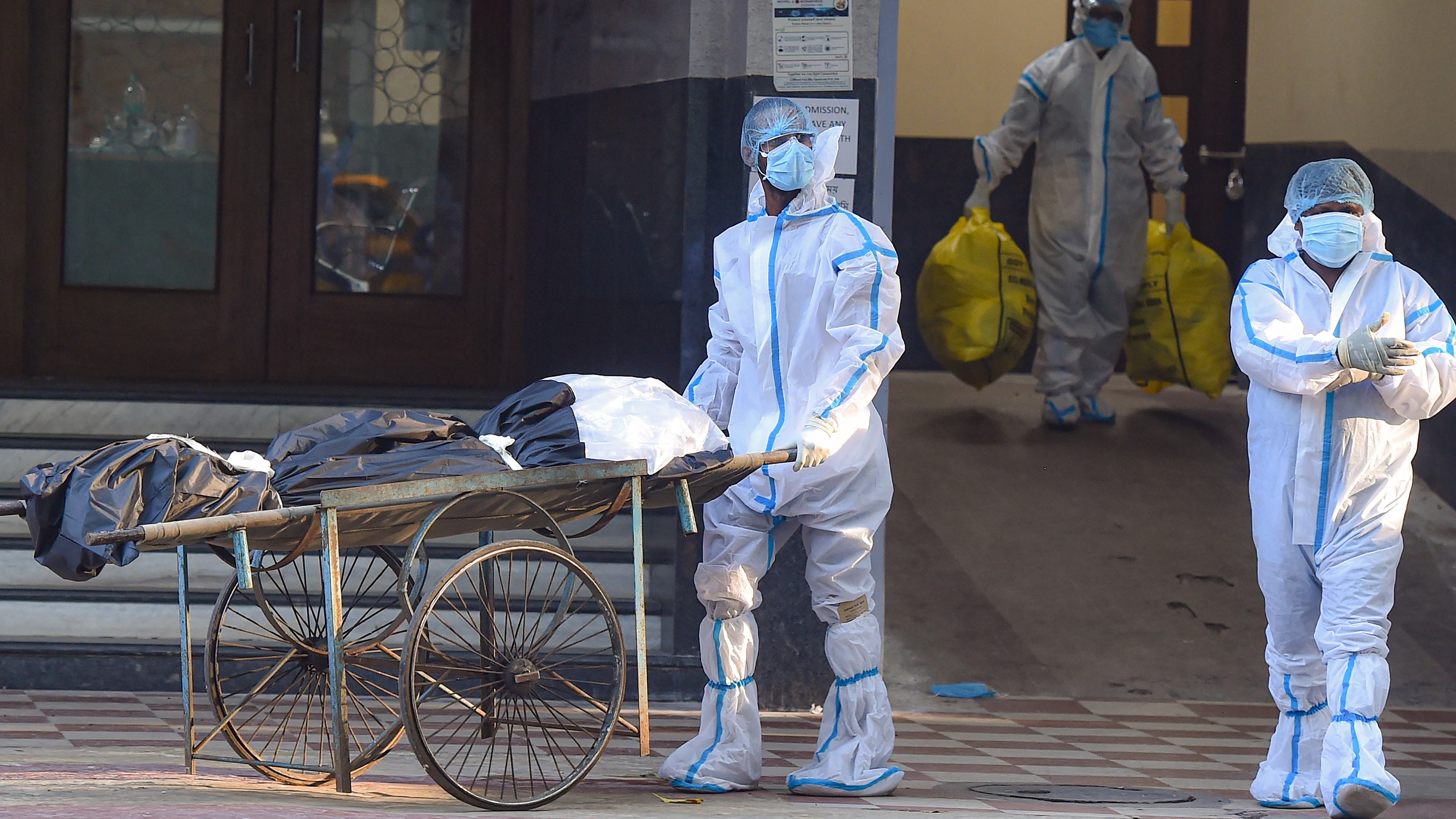
India’s cumulative Covid-19 death toll breached the 3-lakh mark on Sunday, with the final one lakh deaths coming in less than a month as the country battled the biggest coronavirus wave in the world. India became the third country to reach the grim milestone after the United States and Brazil.
Despite being second in terms of overall Covid cases, India’s relatively low case fatality rate (CFR) — the ratio of deaths to confirmed cases — of 1.1% has kept its death count far below Brazil’s 4.5 lakh deaths and the US’ 5.9 lakh deaths. The global CFR stands at about 2.1%.
However, the official death toll has come under scrutiny in the country, with critics suggesting that India’s official count may be reflecting only a portion of deaths in the country as crematoriums run out of firewood and bodies are buried in river beds. Some have also picked apart the policy to disregard deaths with co-morbidities as Covid victims.
India logged about 1.16 lakh deaths in the last 30 days, more than three times the cumulative total number of deaths in the rest of the year and just about 30,000 fewer deaths than the entire toll in 2020.
The government has said India’s second, and more devastating, wave was propelled by fast-spreading virus mutants and people being careless about Covid protocol, though international and domestic experts apportioned some of the blame to political and religious gatherings in the country despite the looming coronavirus threat.
Major cities in Maharashtra, Delhi, Uttar Pradesh, Karnataka and Chhattisgarh bore the brunt of the second wave, with several cities hard-pressed to supply oxygen, beds and ventilators.
The country’s vaccination drive also hit several roadblocks in the last couple of months as manufacturers struggled to keep up with skyrocketing demand and states having to pause their drives for want of jabs.
Experts have warned of a third, and even more deadly, wave may be in the offing if the pace of vaccination is not improved dramatically. The government has said it plans to make more than 200 crore doses available between August and December this year, though experts have voiced some scepticism as states continue to flag vaccine shortages.